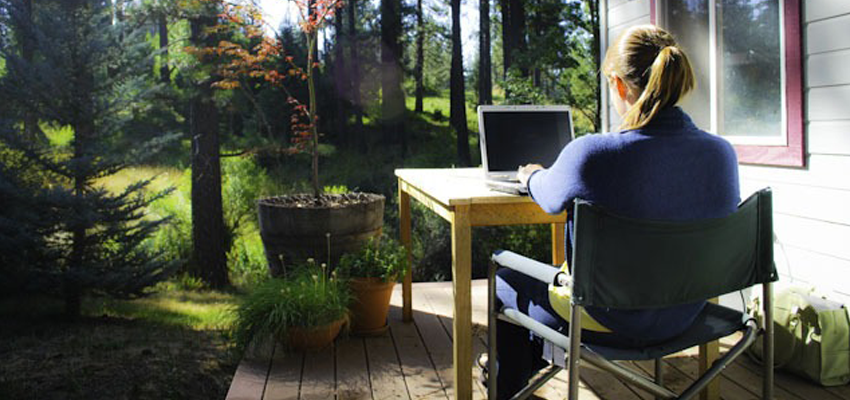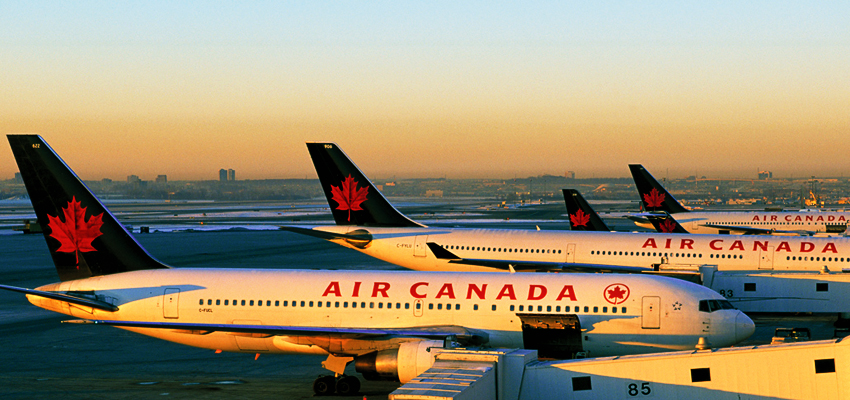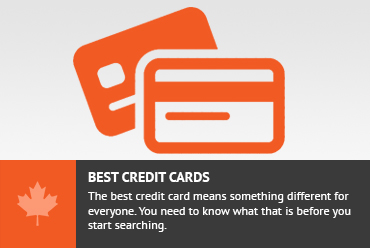Are you thinking of (or in the process of) developing a location independent career? It’s a lot of work and there are a few misconceptions about the lifestyle (hint: you’ll find yourself working on the beach with a frilly drink in hand a lot less than you’d imagine), but it’s also incredibly rewarding and freeing. Here are 12 things to consider when working as a location independent.
Dear Nora:
I’m tired of working for “the man”. I want to develop a location independent career like yours, so I can travel the world and work via internet! But I have no idea where to begin or if I’m even being realistic about it all. Got any tips? Thanks, Rose
For the last 10 years, I’ve travelled full-time and made a living with little more than my laptop and an internet connection. There’s a surprising number of ways you can do this; I’ve met writers, illustrators, voice-over artists, designers, importers, telecommuters, project managers, coaches, virtual assistants, and many more people who all earn money without a physical office.
But working location independently involves some challenges that in many cases are endemic to the lifestyle. Awareness of these challenges will help you up the learning curve. Read on for 12 things to consider, with advice from experienced location independent entrepreneurs.
(See also: Working on the Road: The Unconventional Guide to Full-Time Freedom)
You Can’t Exactly Go Anywhere
Although you might entertain ideas of working from the highest treetops or lowest canyons of the world with your newfound freedom, as you develop your career you’ll realize your travel choices are limited by the invisible umbilical cord that connects you to the internet. And not just any internet….good internet.
Last year I took a month-long trip that entailed no internet…none. I knew this was coming and thus prepared myself by getting ahead with work and automating as much as I could, but it was still a slightly terrifying experience, and one that meant I needed a solid week when I got back just to catch up with emails and other online activities. I’ve also lived in various rural locations around the world with very slow internet, and it had detrimental effects, especially in the early stages of developing my career.
Then again, everything is a choice. I continue to choose to live in a rural area of Peru, and have found ways to manage the slow internet. (See also: Digital Nomads: Internet Speed Makes a Difference. (Do You Care?))
Portability is Key
Lea Woodward is a “multi-passionate entrepreneur” and pioneer in the location independent industry. She and her family have been travelling since 2007, and (among other ventures) she ran a business in marketing for health and wellness professionals, she created the site LocationIndependent.com to help others become location independent, she founded an online school called Startup Training School for women to learn technology skills for their own online careers, and she’s regularly starting new and amazing projects and ventures. She’s also an online coach, consultant and mentor under her own brand at LeaWoodward.com with a range of digital products to help fellow entrepreneurs.
Her first tip is that your location independent business must be portable.
“It’s important to ensure that not only the main income-generating tasks can be done from anywhere on any device, but also any of the admin/support tasks required to run and grow your business. When on the road, you don’t always have optimal conditions for working so it helps to be able to manage your business, literally on the go from whatever device you happen to be on, using whatever wifi signal you happen to pick up.”
For example, set up your email to synchronize across devices so you can respond to urgent requests expediently, and use communication tools such as Skype (more on this later) so you can make and receive calls no matter where you are.
Develop Passive Income Streams
Lea also stresses the benefits of developing passive income streams for times when you’re actively on the road or busy with other things.
“Travel and sustained focused business growth usually don’t mix that well. It helps to set your business up in a way that means it can go for weeks/months at a time without needing constant feeding and attention. This means having well-defined processes, well-tested systems and a solid structure in place.”
Travel Slowly
Whether you’re travelling solo or with a partner or family in tow, if you’re of a mind to take up a full-time travel lifestyle while managing your location independent career, pay attention to your pace of travel and how you fare. In general, you will find that the faster you travel, the more money you’ll spend, and the less time you’ll have to balance your work requirements with soaking in the ever-changing sights.
During one particularly hectic year of travel, the longest I stayed in any one bed was two weeks (which happened once); I averaged five nights in each place. Travel fatigue took a firm hold by the end of the year, and I spent the first six months of the following year in a near-comatose state in New Zealand. Not only that, but I consistently found that in each destination one of two things suffered: my work (when I was sightseeing), or my sightseeing (when I had to buckle down and work).
When you slow down the pace, you have more time to work and explore. You won’t feel guilty if you don’t go out and discover something new every day, and you can deepen your cultural experience by interacting with locals who wend their way into your “daily life”.
Get Your Business in Place Before Travelling, then Take a Test Trip
Jonathan Woodward is Lea Woodward’s husband, and has his own location independent career as a wildlife illustrator specializing in a cut paper collage style. His work has been featured in children’s books, on toy packaging, in an animation series and well-known campaign adverts. With their (now) two children, they have run their businesses from places such as Panama, Grenada, Buenos Aires, Thailand, Italy, Dubai, Hong Kong, Turkey, and South Africa.
Firstly, Jonathan recommends setting your business, marketing, and financial management practices in motion before starting to travel.
“All these things need to continue to happen when you’re on the road, as well as doing your actual work for clients. When you’re on the road, you have a number of other things vying for your time and attention—things like travel planning, sightseeing, resting, and enjoying where you are. It’s the activities that keep things ticking over and running smoothly that can often get dropped when you’re on the road because they rarely seem as mission critical as, say, a client deadline—and yet they are.”
Once you think you have everything running well, Jonathan suggests taking a test trip so you don’t have any nasty surprises after you’ve committed to a long-term trip.
“Take a short haul trip for 3-4 days to see how it feels and identify some of the aspects you may not have thought of or prepared for while you’re actually away from your home base and can’t return easily.”
Diversify Your Income
Unless you’re telecommuting for a living and working for one boss, Jonathan recommends that you diversify your location independent income as a safety mechanism against industry/market changes. (Added benefit: It keeps things interesting – and profitable).
“Create additional income streams that help make money without you having to do ongoing work; subscriptions, memberships etc. all help relieve the pressure of trading time for money, and protect you from the boom/bust nature common to many location independent businesses. This leaves you more time to explore, sightsee and enjoy the travel aspect of working on the road.”
Choose Travel Experiences Compatible With Your Location Independent Career
When I started travelling full-time, I specialized in volunteering in trade for my accommodation. I loved the cultural immersion it offered, and it was a great way to make social inroads and save big money. But volunteering up to 25 hours per week in addition to working my location independent business left little time for anything else. Between volunteering and working, I found myself in one instance volunteering/working upwards of 60 hours per week, and wondering why I was consistently never able to actually get out and discover the exotic locale I was living in. I realized I’d traded one rat race for another, negating the fact that I was actually “travelling” to begin with.
Then, I discovered another form of free accommodation that was a game changer: house-sitting. This was a perfect fit for my location independent career; I could enjoy all the comforts of home (somebody else’s home, that is!) while getting my work done, and had lots of time left over to explore the sights around each of my house-sitting home bases. And with free accommodation I was saving upwards of $12,000/year. (See also: How to Get Free Accommodation Around the World)
If You Have a Partner, Establish a Routine That Works for Both of You
I’ve travelled with partners who don’t have location independent careers, and it was fraught with time-management challenges, especially if my partner didn’t understand the nuances of location independent work.
Alexandra Jimenez is in the same boat, but she has worked out a system. She’s been to almost 40 countries on six continents since quitting her corporate job in the fashion industry in 2008. She channeled her fashion experience and advice into Travel Fashion Girl, which maintains her full-time travel lifestyle. Her partner (who she travels with) doesn’t have a location independent business.
“My solution to this problem was establishing a two-day work schedule. I spend those entire days working which puts the pressure on me to finish everything within my allotted time. This really helps me as I have horrible time management skills. If there is something urgent [on a non-work day] that comes up such as an ad sale, for example, I will work on it as quickly as possible at a time that least disrupts our plans. If it’s major, I add work days as needed.”
Alexandra and her partner also take separate solo trips of up to a month in duration.
“I can focus on my own personal or work-related projects while also rejuvenating the spark of travelling alone and giving the relationship some breathing room. I went to Sulawesi Indonesia and Papua New Guinea for one month to dive while my partner went to Java Indonesia to trek. I had an opportunity to do yoga classes and things he doesn’t care to do while also working on a big project.
Working two days per week supports and maintains my lifestyle but doesn’t allow me to work on new projects to further the growth of my business. For bigger projects, I stop for an extended period of time and rent an apartment or go on a solo trip to focus and complete projects.”
Create a Work Routine, and be Disciplined
When you’re on the road, routines are easily thrown out of whack. You don’t have a regular place to work, ergonomics can be tricky, travel days throw working hours out the window, and random opportunities to socialize and explore cap off this picture that, if you’re not careful, can mean a very unproductive location independent career.
Discipline is the first ingredient to any entrepreneurial venture, and even more so when it involves location independent work. Nobody but you can light a fire under your butt to work, and it’s up to you to create a working environment that bodes well for you.
Pay attention to the times of day – and circumstances – where you are most alert, enthusiastic to work, and productive. Most people have a sweet spot for work and creative flow, often in the morning. Once you know your sweet spot, you can create a general routine around it.
There will always be the odd reason why you can’t adhere to your routine, so it’s up to you to decide where you can flex and how to make up for it. Having the ability to do what you want when you want is the beauty – and also the catch – to location independent work.
Marketing: Get Social Media Savvy, and Work Your Niche
Irene Becker is an executive coach, consultant, trainer, speaker, and writer. Through her business Just Coach It, she works with individuals and businesses in Canada, the USA, and Europe. She does face-to-face consultations when she is able to, but she also conducts meetings over the telephone, Skype, and via video conferencing.
In terms of marketing, Irene extols the virtues of working social media to your location independent business’s advantage.
“Get social media savvy. Learn how to create a social media footprint. Learn about the different social media channels and discover a few channels that resonate with your constituency, your network. You do not have to be an expert at everything, but you need a basic understanding of business, social media, and marketing that you can further either with self-study or by hiring reliable professionals who can help you in each of these areas.”
She also says it’s important to have a niche, even if you can do more than just what your niche covers.
“You cannot boil the ocean in terms of marketing your practice. Focus initially on a small slice of the pie where you have connections, traction, and where your message will resonate and resound.”
Remember: It’s Work
I’ve been contacted by readers with delusions of subsidizing their upcoming backpacking adventure with a travel blog, without having started a travel blog or even thought about it, and a scheduled departure a few weeks out. It doesn’t work that way.
It took me nearly two years of almost full-time work to develop my own location independent career to the point that it could support me. Not that it wasn’t fun along the way, but it was most certainly work, and a lot of it.
If your location independent dream is to sit on a beach all day with frilly drinks and the occasional click of the mouse, think again. (See also: 17 Reasons NOT to Blog About Your Trip)
Enjoy the Learning Process
Jim Wang started a personal finance blog called Bargaineering.com in 2005 as a hobby after graduating college. By 2008, Bargaineering was a full-fledged business. He grew it with guest posts, commenting on other personal finance blogs, and along the way he discovered advertising platforms like Google Adsense. Eventually he got into affiliate marketing which earned him income through people signing up for credit cards and other financial services. Jim’s efforts paid off when, according to Bankrate’s S-1 filing, he sold his blog for $3,500,000. Now, Jim writes at Microblogger.com, where he teaches others how to create a business they can be proud of through what he learned in building Bargaineering. Future monetization plans for the new site include coaching or selling products.
I asked Jim what advice he can offer to aspiring location independent entrepreneurs:
“Be prepared to work long and hard, but treat it like a learning process and you’ll enjoy it. Try as many things as possible, and don’t be afraid to fail. Failure on the internet is near painless. I wrote 4,500 blog posts, averaging 600 words a piece, over the course of eight years and the majority of the income of the blog came from, at most, 50 posts. In theory, that means there are thousands of “failures.” I felt like I had to get through those failures in order to find the successes and I’m glad I never stopped.”
Dear Nora, incomes abroad, location independent











One comment on “Dear Nora: Want to Go Location Independent? Read These 12 Considerations First”